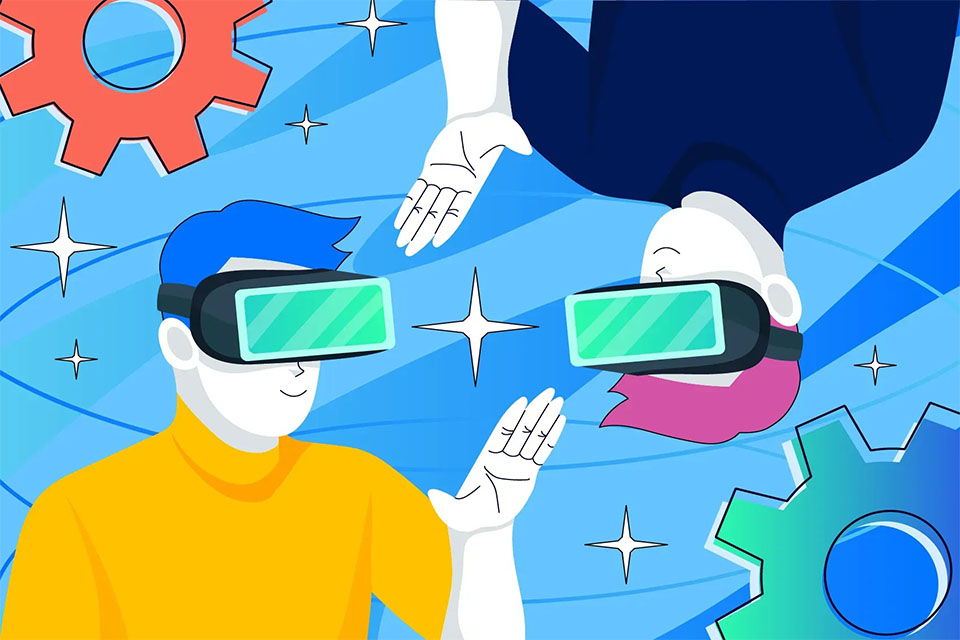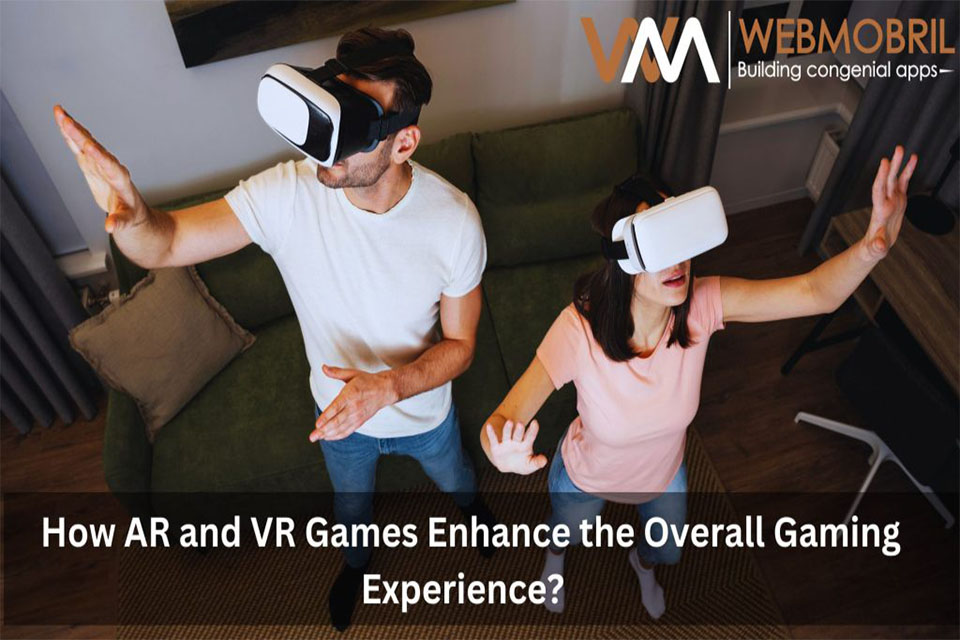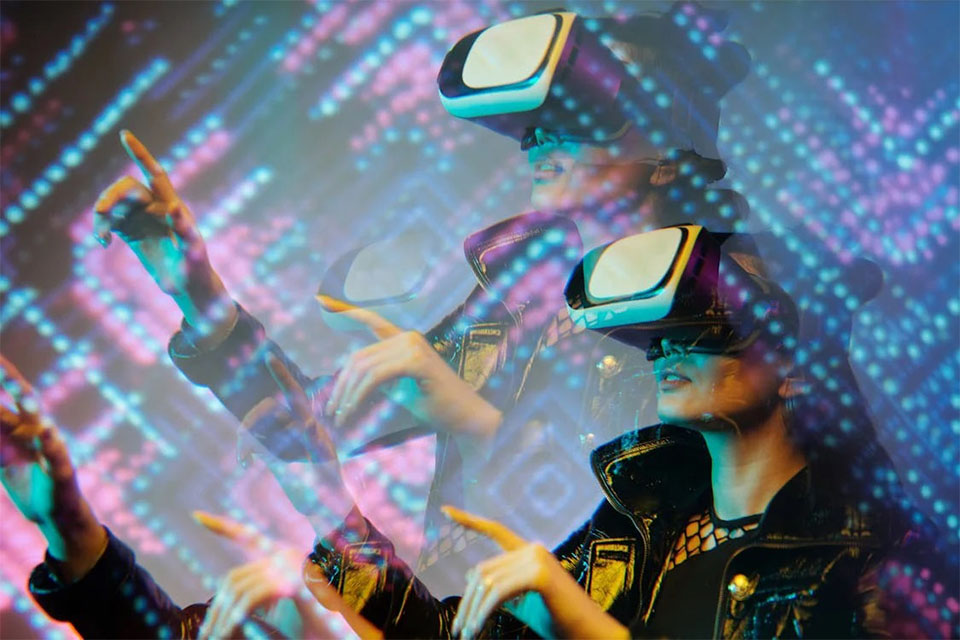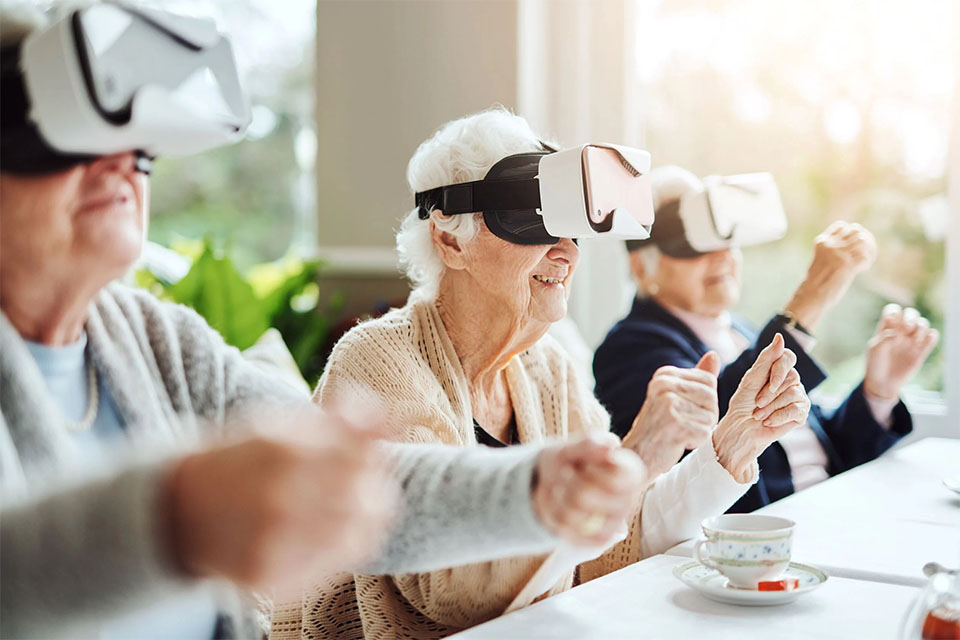Virtual reality (VR) has taken the world by storm, transforming the way we interact with technology and experience entertainment. Whether you’re exploring a fantasy game, visiting distant lands, or working in a virtual environment, VR has created a new world of possibilities. But what exactly makes VR so enjoyable and addictive? In this article, we’ll explore the reasons why VR is so fun for so many people. From its immersive experience to the freedom it offers, you'll understand why VR is not just a passing trend, but a revolution in entertainment.
What Makes VR So Addictive?
How Does Virtual Reality Feel So Real?
Why Is VR Gaming a New Frontier in Entertainment?
Can VR Make You Forget About the Real World?
Is Motion Sickness a Problem in VR?
How Does VR Gaming Enhance Your Skills?
Why Do People Love the Immersion of VR?
Is VR an Effective Tool for Socializing?
Can VR Be Used for More Than Just Games?
What’s the Future of VR? Why Will It Continue to Grow?
Virtual reality has a unique ability to captivate its users. Unlike traditional video games or entertainment forms, VR offers an experience that can make you feel as if you're truly "inside" the action. What makes VR so addictive is its immersive nature. By using headsets and motion controllers, VR technology tricks your brain into thinking you're in a completely different world, engaging multiple senses at once. This sensation of being "there" is a major part of its appeal.
The immersion factor is enhanced by virtual reality gaming, where players control characters and interact with the environment in real-time. Whether it’s the thrill of solving puzzles or the excitement of exploring new worlds, VR offers a level of engagement that is unmatched by other entertainment mediums.

One of the key reasons VR is so fun is because of how real it feels. The technology behind VR creates a highly detailed, 360-degree environment that responds to your movements in real time. When you wear a VR headset, your vision is completely surrounded by the virtual world, and your movements—whether it's turning your head or physically walking—are mirrored in the game or experience.
This immersive experience is made possible by advanced motion tracking and graphics technology. The immersive tech used in VR setups ensures that the virtual world feels realistic, whether you're flying through space or walking through a haunted house. This level of realism is what keeps users coming back for more.
VR has redefined the world of gaming. Unlike traditional video games where you control a character on a screen, VR gaming allows you to step directly into the game. You control not just the actions of a character, but your own body, using motion controllers, treadmills, and even full-body tracking systems. This deep level of interaction provides a richer, more dynamic gaming experience.
In VR gaming, your sense of presence is amplified, making each action feel more impactful. Whether you’re wielding a sword in a fantasy battle or solving puzzles in a mystery game, VR gaming adds layers of excitement and tension that flat screens simply can’t match.
For many people, one of the most enticing aspects of VR is its ability to transport you completely out of your everyday life. The level of immersion in a VR game or experience can make you forget the real world entirely. This is why VR is often used as a form of escapism, offering a break from reality.
Whether you're escaping into a fantasy realm, experiencing a historical moment, or simply relaxing in a virtual environment, VR offers a sense of freedom and possibility that’s hard to match in the real world.

While VR is incredibly fun, it does come with a downside for some users: motion sickness. Some people may experience discomfort, dizziness, or nausea when using VR, especially in fast-paced games where movement within the virtual world doesn’t align perfectly with the user’s physical movements. This is known as motion sickness, and it's caused by a disconnect between the visual input from the VR headset and the signals the body receives from the inner ear.
Fortunately, VR manufacturers have worked hard to mitigate these issues. Updates to VR systems, such as improved frame rates, better motion tracking, and options for reducing rapid movement in games, have made VR experiences more comfortable for a wider audience.
While VR is undoubtedly fun, it also offers benefits beyond entertainment. Many VR games and applications are designed to improve cognitive functions, physical coordination, and problem-solving skills. Some virtual reality games require you to think critically, plan your moves, or even exercise your body as you move around in the virtual space.
For instance, VR games like rhythm-based titles or first-person shooters help improve hand-eye coordination and spatial awareness. In educational VR experiences, users can learn complex concepts in a hands-on, interactive way, improving both their cognitive and physical skills.
The primary reason people love VR is the deep immersion it offers. Traditional gaming and entertainment experiences are limited by screens and controllers, but VR breaks these boundaries, making you the protagonist of your story. By fully immersing you in the experience, VR allows you to explore new environments, interact with virtual objects, and even engage in social interactions with other users—all of which contribute to making VR so enjoyable.
The immersive nature of VR is what sets it apart from other technologies. Unlike traditional forms of entertainment, where you’re an observer, VR places you in the middle of the action, making it more engaging and memorable.

Another exciting aspect of VR is its potential for social interaction. VR is not just about gaming—it’s also about connecting with others in new and innovative ways. Whether you're joining a multiplayer game or attending a virtual event, VR provides an entirely new space for socializing.
In virtual reality, you can meet people from all over the world and interact in ways that feel more natural than text or voice chat. The ability to move around and use hand gestures in VR social spaces makes virtual interactions feel more personal, even though you're miles apart. This social aspect is becoming increasingly popular, with more platforms offering virtual social experiences.
While VR is often associated with gaming, its applications extend far beyond that. From educational tools to virtual tourism, VR is transforming various industries. In education, for example, students can take virtual field trips to historical landmarks or conduct science experiments in a virtual lab. In healthcare, VR is being used for therapeutic purposes, helping patients with anxiety, PTSD, and physical rehabilitation.
This versatility is another reason why virtual reality has garnered so much attention. It’s not just a tool for fun—it’s becoming a powerful resource for learning, therapy, and even remote work.
The future of VR is incredibly promising. As technology continues to evolve, VR systems are becoming more affordable, accessible, and advanced. With innovations like 5G networks, improved motion tracking, and more realistic graphics, the next generation of VR experiences will be even more immersive and engaging.
We’re likely to see an expansion of VR’s use in industries like healthcare, entertainment, and even business. As more people experience the fun and benefits of VR, it will continue to grow in popularity, with new applications and experiences emerging all the time.

VR gaming offers an immersive, interactive experience that engages both the mind and body.
The immersive tech used in VR creates a realistic, engaging environment that makes users feel like they’re part of the action.
Despite the excitement, motion sickness can be a barrier for some users, though improvements are being made.
Virtual reality enhances cognitive and physical skills, making it not just fun but educational.
VR is evolving beyond games, being used for socializing, education, healthcare, and more.
The future of VR looks bright, with advancements in technology making it more accessible and immersive than ever before.
Virtual reality is much more than just a fun pastime—it's a technology that has the potential to change how we experience the world. Whether you're gaming, learning, or socializing, the possibilities are endless.
Contact: Ashley Wu
Phone: +86 17773983073
E-mail: [email protected]
Add: 708 Room A Buiding Huafeng International Robot Industrial Park Xixiang Bao'an